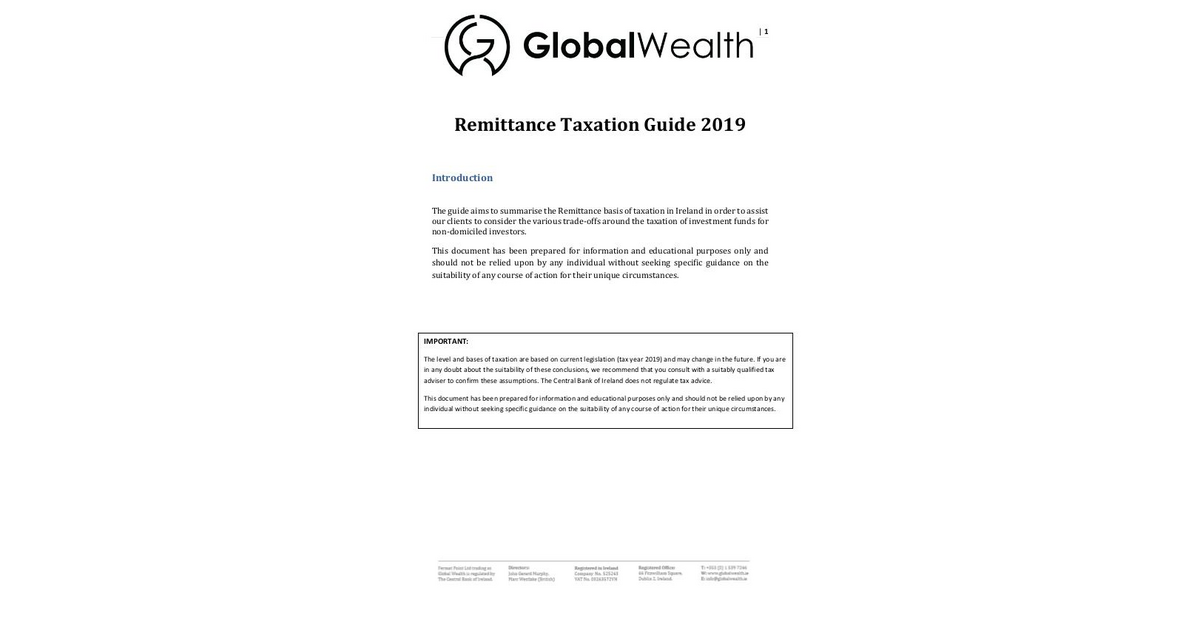There is a specific example referred to in the OSullivan case in my post above
Revenue has not issued any guidance as to what constitutes a bona fide transfer.
“The bona fide condition was introduced in 2009 in a bid to stop PRSAs being used to facilitate 'artificial' transfers of occupational pension schemes outside of Ireland and back again. In 2012 the Revenue Commissioners were advised by the pensions industry that many requests for transfer of pension schemes overseas were in response to advertising by international scheme providers in Ireland. These schemes sometimes work by way of a "dual transfer" - an individual's pension fund is transferred to an overseas arrangement which meets the requirements of S.I. No. 716/2003, whereby it is then immediately transferred to another jurisdiction to allow for easier access to the funds.
The increase in overseas transfers raised concerns concerning the potential flight of pension funds out of the country, the risk to the pension holders and an undermining of the primary purpose of tax relief for pensions, i.e., to encourage individuals to save for retirement. This supposes that pension funds are 'locked away' and not accessible until retirement. The Revenue, as part of the reforms under the 2012 circular, introduced the requirement to include a signed declaration that the transfer being sought was bona fides. It is the Revenue Commissioner's position that the inclusion of this declaration by the PRSA holder is not conclusive evidence of bona fides. The PRSA provider can still make further enquiries to assess the validity of the proposed transfer and is under no obligation to "blindly accept a signed declaration" as the only evidence.”
"A member of an occupational pensions scheme or a PRSA contributor who directs the trustees of the scheme or the PRSA provider to make a payment to, or transfer assets to, an arrangement for the provision of retirement benefits outside the State (i.e. an overseas arrangement) under the provisions of the Occupational Pensions Scheme and Personal Retirement Savings Accounts (Overseas Transfer Payments) Regulations 2003 (S.I. No. 716 of 2003) shall, prior to any transfer, sign a declaration, in such form to be determined by the Revenue Commissioners, to the effect that the transfer conforms to the requirements of the regulations and Revenue pension rules, is for bona fide reasons and is not primarily for the purpose of circumventing pension tax legislation and Revenue rules."
From the Judge’s summary
“I do not think that the defendant (the pension trustee) is under an obligation to engage in an investigation of the motives of the plaintiff. Provided there is nothing in the facts of the case as presented to the company to give rise to suspicion as to the bona fides of the transaction, the defendant company is free to implement the wishes of the owner of the fund. Having said that, I am not sure that it is possible to lay down a general rule. Everything depends on the circumstances of the particular case. It is sufficient to say that in this case there appears to be no basis for questioning the motives of the applicant and that his declaration in the approved form is therefore sufficient. The defendant company does not have any reason to be uneasy and is not required to verify the factual circumstances behind the application or to make some general exploration of the applicant's motives. This condition is not accordingly a legitimate ground of refusal.”


